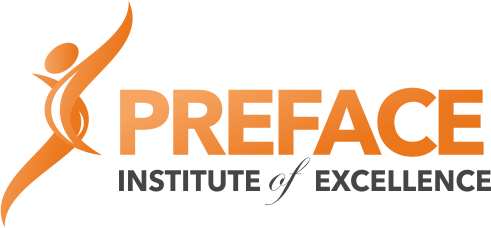How Does Boarding School Education Influence a Child’s Behavior?
Boarding schools have long been a subject of intrigue and debate in the realm of education. These institutions, characterized by their residential aspect where students live on campus during the school term, offer a unique blend of academic rigor, structured environment, and diverse extracurricular activities. One of the most significant discussions around boarding schools revolves around their influence on a child’s behavior. This blog explores how boarding school education can shape and influence a child’s behavior, delving into various aspects that contribute to this transformation.
Introduction to Boarding Schools
Boarding schools, known for their structured and disciplined environment, provide a holistic education that extends beyond academics. They aim to develop well-rounded individuals by fostering intellectual, social, and emotional growth. The impact of boarding school education on a child’s behavior is multifaceted, encompassing various elements such as independence, discipline, social skills, and emotional resilience.
Living Away from Home
One of the most significant behavioral influences of boarding school education is the development of independence and self-reliance. Living away from home necessitates that children learn to manage their daily routines, personal care, and responsibilities without the immediate presence of their parents. This experience helps them become more self-sufficient and confident in their abilities to handle various situations.
Decision-Making Skills
Boarding schools encourage students to make decisions regarding their academic and personal lives. This environment nurtures critical thinking and problem-solving skills, as students often need to weigh the consequences of their choices independently. Over time, this fosters a sense of responsibility and maturity in their behavior.
Structured Environment
The structured environment of boarding schools is instrumental in instilling discipline. Students follow a rigorous schedule that balances academic commitments, extracurricular activities, and personal time. This structure helps inculcate a sense of discipline, punctuality, and time management, which are crucial behavioral traits.
Adherence to Rules and Regulations
Boarding schools have clear rules and regulations that students are expected to follow. Adhering to these rules teaches children the importance of respecting authority and understanding the consequences of their actions. This adherence fosters a disciplined approach to life, which is reflected in their behavior both inside and outside the school.
Living in a Community
Boarding school students live in a community with their peers, which significantly influences their social behavior. They learn to share spaces, resources, and experiences, promoting a sense of camaraderie and cooperation. This communal living situation helps students develop empathy, respect for others, and strong interpersonal skills.
Exposure to Diversity
Boarding schools often have a diverse student body, with individuals from various cultural, social, and geographical backgrounds. This diversity exposes students to different perspectives and ways of life, enhancing their social skills and cultural awareness. It also encourages tolerance, open-mindedness, and acceptance of differences, which are essential behavioral traits in today’s globalized world.
Coping with Homesickness
One of the initial challenges boarding school students face is homesickness. Learning to cope with this emotional challenge helps build emotional resilience and mental toughness. Over time, students develop strategies to manage their emotions and adapt to new environments, which positively influences their overall behavior.
Handling Stress and Pressure
The academic rigor and extracurricular demands of boarding schools can be intense. Students learn to handle stress and pressure through effective time management, seeking support when needed, and maintaining a balanced lifestyle. This ability to manage stress contributes to their emotional resilience and positively impacts their behavior.
Focused Learning Environment
Boarding schools provide a focused learning environment with minimal distractions, allowing students to concentrate on their studies. This environment encourages academic excellence and intellectual growth, fostering a love for learning and intellectual curiosity. The dedication to academics often translates into a disciplined and motivated behavior.
Access to Resources and Support
Boarding schools typically offer extensive academic resources and support systems, including libraries, laboratories, and tutoring. Access to these resources helps students excel academically and develop a proactive approach to their education. This proactive behavior often extends to other areas of their lives, promoting a well-rounded personality.
Diverse Opportunities
Boarding schools offer a wide range of extracurricular activities, from sports to arts to community service. Participation in these activities helps students discover their interests and talents, promoting a well-rounded development. Engaging in diverse activities also encourages teamwork, leadership, and time management skills.
Balanced Lifestyle
The emphasis on a balanced lifestyle in boarding schools teaches students the importance of balancing work and play. They learn to manage their time effectively, ensuring that they excel academically while also pursuing their interests and hobbies. This balanced approach contributes to a healthy and positive behavior.
Leadership Opportunities
Boarding schools provide numerous opportunities for students to take on leadership roles, such as prefects, team captains, or club presidents. These roles help students develop leadership skills, confidence, and a sense of responsibility. Leadership experiences foster a proactive and accountable behavior, preparing students for future challenges.
Responsibility Towards Community
Living in a boarding school community instills a sense of responsibility towards others. Students learn to support and look out for their peers, fostering a compassionate and considerate behavior. This sense of community responsibility extends beyond school life, influencing their behavior in broader social contexts.
Communication Skills
Boarding school students often communicate with their parents through letters, phone calls, or video chats. This mode of communication helps them articulate their thoughts and feelings more effectively. Improved communication skills contribute to better relationships with family and friends, positively influencing their social behavior.
Parental Support and Guidance
Despite being away from home, parental support and guidance remain crucial. Regular communication with parents helps students navigate challenges and make informed decisions. This ongoing support reinforces positive behavior and emotional stability.
Adapting to New Environments
Boarding school students frequently adapt to new environments, whether through changing dormitories, classes, or extracurricular activities. This adaptability helps them become more flexible and open to change, positively influencing their behavior.
Overcoming Challenges
The challenges faced in boarding school, such as managing academic pressure, homesickness, and social dynamics, help students develop problem-solving skills and resilience. Overcoming these challenges fosters a strong and determined behavior, preparing them for future adversities.
Academic and Career Success
The disciplined and motivated behavior cultivated in boarding school often translates to academic and career success. Alumni of boarding schools frequently attribute their achievements to the strong work ethic and resilience developed during their time at school.
Lifelong Friendships and Networks
The close-knit community of boarding schools fosters lifelong friendships and networks. These relationships provide emotional support and professional connections, contributing to a positive and supportive behavior throughout life.
Adaptability and Global Citizenship
The diverse and dynamic environment of boarding schools prepares students for a globalized world. They develop adaptability and a sense of global citizenship, which positively influences their behavior in various cultural and social settings.
Conclusion
Boarding school education has a profound and multifaceted influence on a child’s behavior. The structured environment, emphasis on independence, exposure to diversity, and development of emotional resilience contribute to shaping well-rounded individuals. Boarding school students often emerge as disciplined, responsible, and adaptable individuals, equipped with the skills and behaviors necessary for success in academic, professional, and personal realms.
In conclusion, while boarding school education presents its challenges, the positive impact on a child’s behavior is significant and lasting. The experiences and lessons learned during this formative period lay a strong foundation for future growth and development, making boarding schools a valuable option for holistic education.
Preface Institute: Shaping Futures for Boarding School Success
Nestled in a thriving educational hub, Preface Institute stands as a beacon of excellence in preparing students for boarding school entrance exams. With a mission to provide comprehensive academic support and personal development, Preface Institute has emerged as a premier preparatory institution. Its high success ratio is a testament to its dedicated faculty, rigorous curriculum, and holistic approach to education.
The Mission and Vision of Preface Institute
The primary mission of Preface Institute is to equip students with the knowledge, skills, and confidence necessary to excel in boarding school entrance exams. The institute aims to foster a love for learning, critical thinking, and personal growth. Preface Institute envisions creating a nurturing environment where students can thrive academically and personally, ensuring they are well-prepared for the challenges and opportunities of boarding school life.
Experienced Faculty: The Backbone of Success
At the heart of Preface Institute’s success is its experienced and dedicated faculty. The institute boasts a team of educators who are not only experts in their respective fields but also passionate about teaching. These seasoned professionals bring a wealth of knowledge and practical experience to the classroom, ensuring that students receive the highest quality education.
The faculty at Preface Institute is committed to continuous professional development, staying abreast of the latest educational trends and methodologies. This commitment to excellence enables them to provide innovative and effective teaching strategies that cater to the diverse learning needs of students. Whether it’s mastering complex mathematical concepts, developing strong writing skills, or understanding intricate scientific principles, the faculty’s expertise ensures that students are well-prepared for every aspect of their entrance exams.
Rigorous Curriculum: Building a Strong Foundation
Preface Institute’s curriculum is meticulously designed to provide a comprehensive and rigorous academic foundation. The curriculum covers all key subjects, including mathematics, science, English, and social studies, with a strong emphasis on critical thinking, problem-solving, and analytical skills. The institute follows a structured approach, ensuring that students build a solid understanding of fundamental concepts before progressing to more advanced topics.
The curriculum is aligned with the specific requirements of various boarding school entrance exams, ensuring that students are well-prepared for the challenges they will face. Regular assessments and mock exams are integral components of the curriculum, providing students with valuable practice and feedback. These assessments help identify areas of improvement, allowing faculty to tailor their instruction to meet individual student needs.
Personalized Attention and Support
One of the key strengths of Preface Institute is its commitment to providing personalized attention and support to each student. The institute maintains small class sizes, ensuring that every student receives individual attention and guidance. This personalized approach allows faculty to identify each student’s strengths and weaknesses, providing targeted support to help them succeed.
In addition to academic support, Preface Institute offers comprehensive counseling services to address the emotional and psychological needs of students. The transition to boarding school can be challenging, and the institute’s counselors work closely with students to help them navigate this significant change. From developing effective study habits to managing stress and building resilience, students receive the support they need to thrive.
Extracurricular Activities and Holistic Development
Preface Institute recognizes the importance of holistic development and offers a wide range of extracurricular activities to complement its academic programs. These activities provide students with opportunities to explore their interests, develop new skills, and build strong character traits.
From sports and arts to leadership and community service, Preface Institute’s extracurricular programs are designed to foster well-rounded development. Participation in these activities helps students build confidence, develop teamwork and leadership skills, and cultivate a sense of responsibility and empathy. The institute’s commitment to holistic development ensures that students are not only academically prepared but also equipped with the social and emotional skills necessary for success in boarding school and beyond.
Success Stories and High Success Ratio
The success stories of Preface Institute’s students are a testament to the institute’s effectiveness in preparing students for boarding school entrance exams. With a high success ratio, Preface Institute has helped countless students secure admission to prestigious boarding schools, paving the way for their future success.
The institute’s alumni consistently perform well in their boarding schools, excelling academically and making significant contributions to their school communities. Many alumni have gone on to achieve remarkable success in higher education and their professional careers, reflecting the strong foundation and values instilled by Preface Institute.
Parent and Student Testimonials
The positive feedback from parents and students further attests to the excellence of Preface Institute. Parents appreciate the institute’s commitment to their children’s academic and personal growth, noting the significant improvements in their performance and confidence. Students express gratitude for the support and encouragement they receive, highlighting the transformative impact of their experience at Preface Institute.
Continuous Improvement and Innovation
Preface Institute is committed to continuous improvement and innovation in its educational practices. The institute regularly reviews and updates its curriculum to ensure it remains relevant and effective. Faculty members participate in ongoing professional development, exploring new teaching methodologies and incorporating best practices into their instruction.
The institute also leverages technology to enhance the learning experience, utilizing digital tools and resources to support instruction and provide students with additional learning opportunities. This commitment to innovation ensures that Preface Institute remains at the forefront of educational excellence.
Conclusion
Preface Institute stands as a distinguished institution dedicated to preparing students for boarding school entrance exams. With its experienced faculty, rigorous curriculum, personalized attention, and holistic approach to education, the institute has achieved a high success ratio, helping students realize their full potential and secure admission to prestigious boarding schools. Preface Institute’s unwavering commitment to academic excellence and personal development ensures that students are well-equipped to succeed in their educational journey and beyond.









